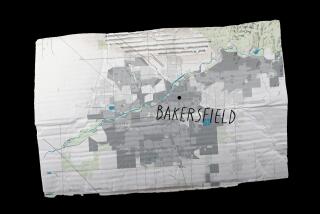Pill Plan Could Be a Disaster
Just how stupid can Californians be? The way the state figures it, too stupid to follow simple instructions that would save their lives in a nuclear disaster. That attitude is more than insulting -- it endangers people who need to protect themselves.
The state had planned to give two potassium iodide pills to each of about 200,000 people living within 10 miles of the San Onofre nuclear plant, to use in case of radiation exposure. Some 20,000 residents near the Diablo Canyon plant along the Central California coast also would receive them.
Although potassium iodide doesn’t offer full protection, it can keep the thyroid from absorbing radioactive iodine, which causes thyroid cancer. But now the distribution is on hold because the state Office of Emergency Services has some concerns. The worries: Once the emergency broadcast went out, people would take the pills and stay at home, figuring they were safe from radiation. And how would tourists and kids in school get their doses?
Maybe it’s better, state officials think, to put the pills in hospitals more than 10 miles from the plants, thus encouraging people to leave the reactor areas.
Can state officials possibly believe that people would relax in a hot tub at home while sirens wail and television continuously calls on them to evacuate immediately?
The state should read the Food and Drug Administration’s document to government agencies on the subject. “For optimal protection against inhaled radioiodines,” it says, potassium iodide “should be administered before or immediately coincident with passage of the radioactive cloud, though [it] may still have a substantial protective effect even if taken three or four hours after exposure.” In other words, minutes matter.
Here’s a far more likely scenario: Everyone tries to leave at once. Cars clog the roadways out of San Clemente and Dana Point. It takes them hours to advance a few miles, hours during which people could have had protection the government denied them. Some people, because of ill health or lack of transportation, wait for evacuation, frantically watching the hours tick away. People eventually get to the designated hospitals. They can’t park anywhere close. They abandon their cars and walk. Then wait in long lines while harried clerks consult a computer to see whether the would-be patient lives within the 10-mile radius.
In response to the 9/11 terrorist attacks, the Nuclear Regulatory Commission offered the pills nearly a year ago to the 34 states that have nuclear power reactors. California took six months to accept the offer. By then the over-the-counter pills already had been distributed to neighbors of nuclear plants in seven other states. Now California is holding up the process while it contemplates replacing a simple plan with one that is complex and potentially catastrophic.
By all means, stockpile extra doses in schools and hospitals. At pennies each, they’re cheap enough. But each day this agency delays in giving people these semiprotective pills strains public faith in the state’s own competence.
More to Read
Start your day right
Sign up for Essential California for news, features and recommendations from the L.A. Times and beyond in your inbox six days a week.
You may occasionally receive promotional content from the Los Angeles Times.






